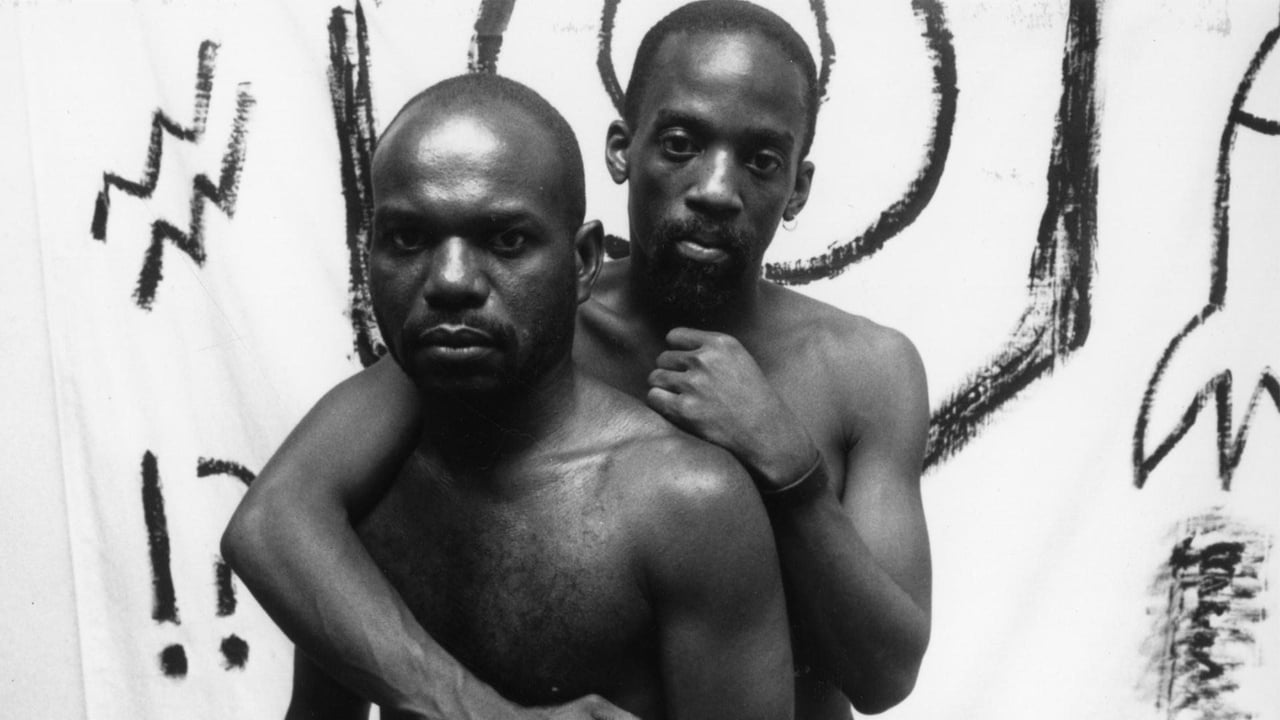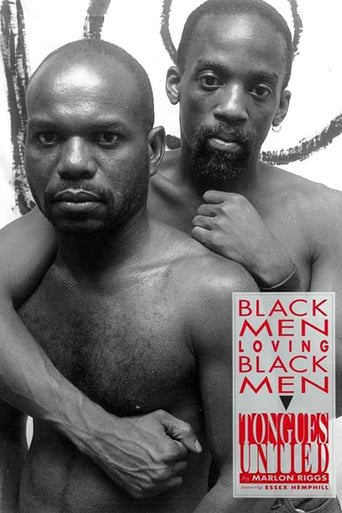



A lot of fun.
Good films always raise compelling questions, whether the format is fiction or documentary fact.
View MoreThis movie feels like it was made purely to piss off people who want good shows
View MoreOne of the film's great tricks is that, for a time, you think it will go down a rabbit hole of unrealistic glorification.
View MoreIt took me a long time to find this short documentary film, I was most keen to see it because of its inclusion in the book 1001 Movies You Must See Before You Die, and the subject matter sounded most interesting. Directed by African-American, homosexual filmmaker Marlon Riggs (who tragically died of AIDS in 1994, aged 37), this film examines and celebrates black men loving black men as a revolutionary act. With the help of many gay black men, the film intercuts between various these men, discussing their experiences, and reciting original poems, and footage of the gay men creating original dance and mime routines. The men freely express their camp and vibrant personalities, including their love for fashion and dressing in women's clothing, they discuss homosexual acts and love making, phone lines and group activities, describe kissing, talk about stereotyping and derogatory name-calling, their anger about racism, bigotry and homophobia, and explain finding themselves. Aside the men talking and reciting poems, the film also sees original song and dance routines and group activities, including a snap dance (clicking fingers), rapping, a group in a gay club and a barbershop quartet. There is also archive footage of related subjects, for and against the argument, including gay anthems, religious sermons, Eddie Murphy doing stand-up, gay propaganda, protests, Martin Luther King campaigning for equal rights and much more. It is a fascinating film in many ways, it certainly works as a personal, positive and passionate plea to end racism and homophobia, and to increase tolerance and "brother to brother" unity, it's poetic, chaotic and controversial, but I'm glad I watched it, an interesting documentary. Worth watching!
View MoreI must admit, this Valentine's Day I have certainly picked unconventional romance movies to watch..."Tongues Untied" plays out like a visual poem, featuring monologues and images dealing with black homosexuality, all edited to create a truly powerful portrait to a little discussed subject matter.The main thing this film has going for it is its style. As I previously stated, its like a visual poem. Its a rhythmic and emotional odyssey through the lives of these people who, especially in 1989, have been represented very little in the media. At times, it gets a little to SJW and over the top, but their rage is somewhat valid. In the late 80s, being black and gay was much harder than it is in the mid 2010s.
View More"Black men loving black men is a revolutionary act." It is also a documentary act which is straightforward, polemic, complex, with heart, with gusto. With diction that fights affliction, this is its basic weapon of beauty, as if its undercurrent was "beauty is no booty for the enemy".For me, a gay white male from Greece, this documentary, coming from my oblique point of view (oblique because being gay in Greece, despite its, rather ironic, pederastic tradition, is quite apart with the issues and the culture of the film, yet the sense of segregation and tradition rings familiar), descriptively it feels like a star-crossed breed of gospel and guerrilla video art.Its veins are pounding deep; being a writer and translator, listening to such keen, sexy, visceral rhythms by the imposing figure of Essex Hemphill, was a revelation with an obsessive glow.And Marlon Briggs' narration, spacious and incisive, unflinching and embracing, with an amazing sense of building-up, leaves me bewildered, more so for appearing somewhat tuned down at first.For anyone liking the feeling of words doing as they want to do and as they have to do, as Gertrude Stein admirably put it, this is a definite watch.
View MoreIn the late 80s and early 90s, a lot of experimentation occurred with movies that attempted to speak out for "marginalized voices", a media theory that concerns the disruption of the upper-middle class heterosexual white man with a wife and 2.5 kids motif of our Western hegemony. Most of these movies, I'm sorry to say, are only interesting to the audiences of which it reflected, and some of them went as far as to create reversal stereotypes by pretty much assuming that upper-middle class heterosexual white men with wives and 2.5 kids should feel guilty or punishable for what they've done to these "subjugated classes".Unfortunately for Marlon Riggs, his documentary "Tongues Untied" is part of the genre, but fortunately, his is a beautiful and poetic creation of it. "Tongues Untied" is about being black and homosexual, which is in fact a complicated thing because being homosexual is especially difficult for someone who is black, as one of the unfortunate side-effects of our history between "blacks and whites" (arbitrary, and yet designed) is the feeling of emasculation. Thus, being a gay black man means that one is torn along a racial standpoint and a sexuality standpoint, and that the one also causes conflict with the other.Thus, when initial audiences were offended that Riggs didn't lay more blame on some particular aspect of society during the movie's release in festivals, they weren't getting the point. Riggs' creation is the projection of himself, his desires, history, motivation, fear, anger, love, sexuality, culture, and humor, onto the screen, and other standpoints or antagonistic standpoints would only serve to destroy the wholeness he finally built within himself. Tongues Untied's theme of "black men loving black men is the only revolutionary experience" doesn't mean that if we want a new revolution, black men need to go out and start having sex with each other, it's that that's Rigg's revolutionary thought for himself--it could have been easier stated "Being yourself is the only revolutionary experience", except that that approach is way too PC and vague to account for the unification of Riggs' experience. The whole film, then, is an attempt to build towards that thesis.--PolarisDiB
View More